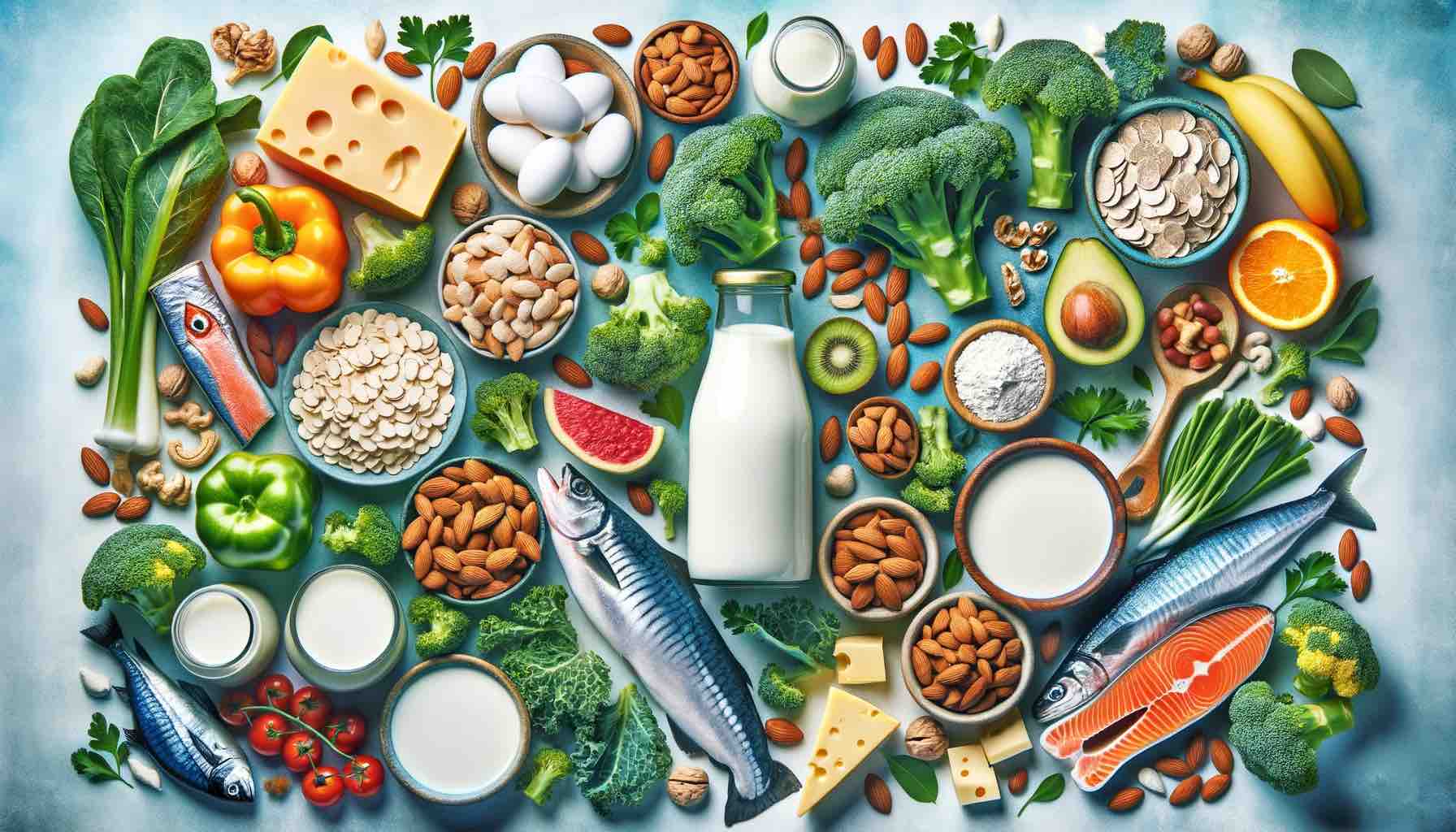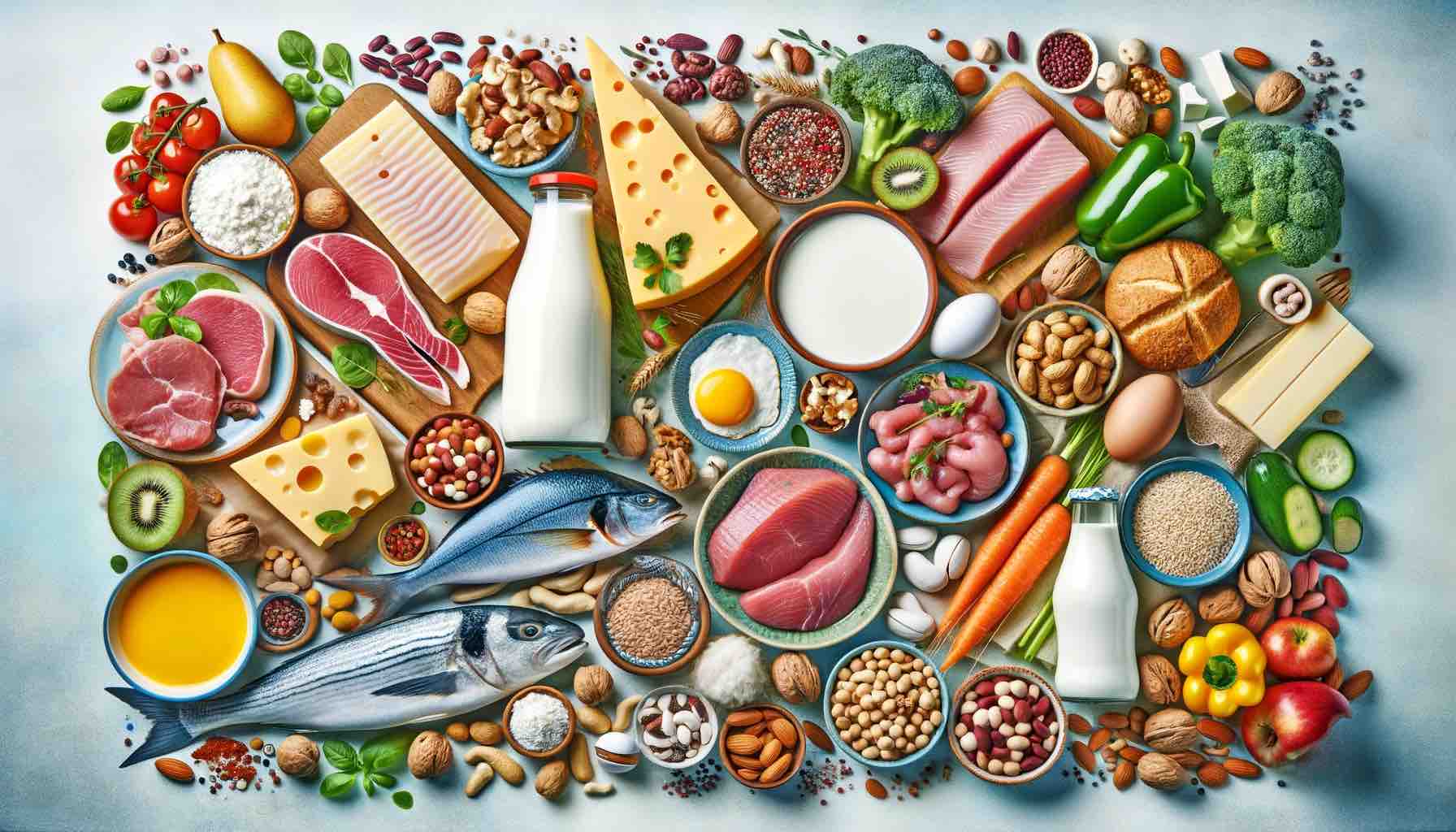
Introduction
Magnesium, often overshadowed by other minerals like calcium and iron, is a critical nutrient that plays a pivotal role in hundreds of biochemical reactions in the human body. From supporting bone health to managing blood pressure, magnesium’s impact is both broad and profound. This comprehensive blog post will explore the multifaceted roles of magnesium, its dietary sources, ideal intake levels, and the implications of its deficiency and excess for health and wellness.
Magnesium Uncovered: Essential Roles in Health and Disease Prevention
Diverse Functions of Magnesium in the Body
- Bone Health: Magnesium contributes significantly to bone formation and is vital in maintaining bone density, working alongside calcium and vitamin D.
- Cardiac and Muscle Function: It regulates muscle contractions and is crucial for heart health, helping maintain a regular heartbeat and preventing arrhythmias.
- Nerve Function and Mental Health: Magnesium aids in the transmission of nerve impulses and has been linked to mood regulation and mental well-being.
- Energy Production and Metabolism: As a co-factor in ATP production, magnesium is essential for energy metabolism and efficient cellular function.
- Protein Synthesis and Cellular Repairs: It facilitates the synthesis of proteins and supports the body’s repair mechanisms at the cellular level.
- Blood Sugar Control: Magnesium plays a role in insulin sensitivity and blood sugar regulation, making it important for diabetes management.
- Blood Pressure Regulation: Adequate magnesium intake has been associated with lower blood pressure, benefiting cardiovascular health.
Navigating the World of Magnesium: Rich Dietary Sources
Where to Find Magnesium in Your Diet
- Plant-Based Powerhouses: Green leafy vegetables, legumes, nuts, seeds, and whole grains are excellent sources of magnesium.
- Meat and Fish: Certain types of fish, poultry, and red meat also contribute to dietary magnesium.
- Dairy Products: Milk, yogurt, and cheese provide magnesium along with calcium.
- Fortified Foods and Mineral Water: Some breakfast cereals and mineral waters are fortified with magnesium.
The Magnesium Intake Puzzle: How Much Do You Need?
Tailoring Daily Magnesium Requirements
- General Guidelines: Most adults require between 310-420 mg of magnesium daily. Pregnant and breastfeeding women may need more.
- Personalized Needs: Factors like age, gender, health status, and lifestyle choices can influence individual magnesium requirements.
The Often-Overlooked Problem: Magnesium Deficiency
Identifying and Addressing Deficiency
- Symptoms: Early signs include fatigue, muscle weakness, cramps, nausea, and loss of appetite. Severe deficiency can lead to numbness, tingling, personality changes, and heart rhythm changes.
- Risk Factors: Poor dietary intake, alcohol abuse, gastrointestinal diseases, and diabetes are common contributors to magnesium deficiency.
Excessive Magnesium: A Rare but Real Concern
Understanding the Implications of High Magnesium Levels
- Sources of Excess: Usually occurs from overuse of supplements or medications rather than dietary sources.
- Health Risks: Excessive magnesium can lead to gastrointestinal issues like diarrhea and, in extreme cases, more serious conditions like kidney failure and cardiac arrest.
Strategies for Maintaining Ideal Magnesium Levels
Practical Tips for Balanced Magnesium Intake
- Prioritize Dietary Sources: Aim to meet magnesium needs through a varied diet rich in whole foods.
- Supplement Wisely: Use magnesium supplements judiciously, under the guidance of a healthcare professional, particularly for individuals at risk of deficiency.
- Regular Monitoring: For those with health conditions affecting magnesium levels, regular blood tests can help manage and monitor magnesium status.
Conclusion: Embracing Magnesium for Holistic Health
Magnesium, a vital nutrient, plays a significant role in numerous bodily functions. From supporting bone health to aiding muscle and nerve function, and regulating blood pressure, its impact is both broad and profound. Adequate intake of magnesium through a balanced diet, or supplements when necessary, is crucial for overall health and well-being. Recognizing its importance and ensuring a sufficient daily intake can help enhance physical health, mental well-being, and overall quality of life.
FAQs
- What are the main functions of magnesium in the body?
- Magnesium is essential for over 300 biochemical reactions, including muscle and nerve function, bone health, energy production, protein synthesis, and regulating blood pressure.
- How can I tell if I’m deficient in magnesium?
- Symptoms of magnesium deficiency include muscle cramps, fatigue, mental disorders, irregular heartbeats, and in severe cases, numbness or tingling.
- What foods are rich in magnesium?
- Foods high in magnesium include green leafy vegetables, nuts, seeds, whole grains, legumes, and certain fish like salmon and mackerel.
- How much magnesium do I need daily?
- The recommended daily intake for adults varies between 310-420 mg, with specific needs depending on age, gender, and life stage.
- Can taking magnesium supplements be harmful?
- Excessive intake of magnesium supplements can lead to adverse effects like diarrhea and, in extreme cases, more serious health issues, so they should be used under medical supervision.
- Is magnesium more important for athletes?
- Athletes may benefit from higher magnesium intake due to its role in muscle function and energy production.
- Does magnesium help with sleep and stress?
- Magnesium has been shown to have a calming effect on the nervous system, which can aid in stress management and improve sleep quality.
- What’s the difference between dietary magnesium and supplements?
- Dietary magnesium is absorbed from foods and is balanced with other nutrients, while supplements provide concentrated doses and are used to address deficiencies or specific health issues.
- Can a vegetarian diet provide enough magnesium?
- Yes, a vegetarian diet can provide sufficient magnesium, especially when it includes a variety of plant-based sources like leafy greens, nuts, and whole grains.
- How does magnesium interact with other minerals?
- Magnesium works in concert with other minerals like calcium and potassium, contributing to their absorption and balance in the body.
Blog Tags for the Post:
magnesium nutrition, bone health, muscle function, nerve function, dietary magnesium, heart health, vegetarian sources of magnesium, magnesium supplements, stress relief, athletic performance











